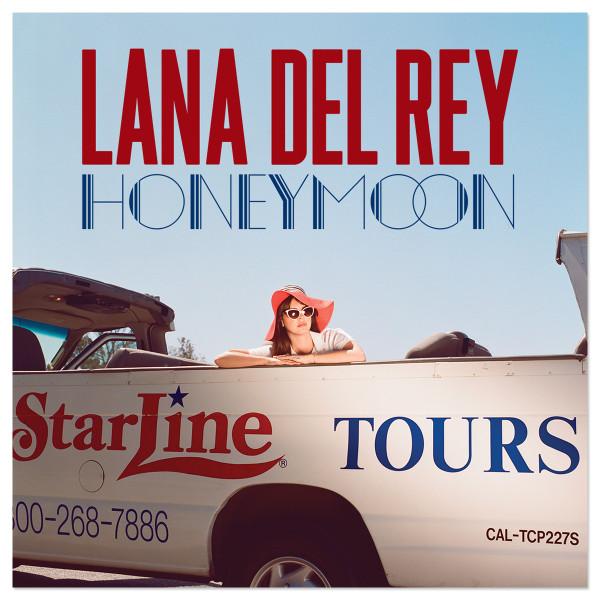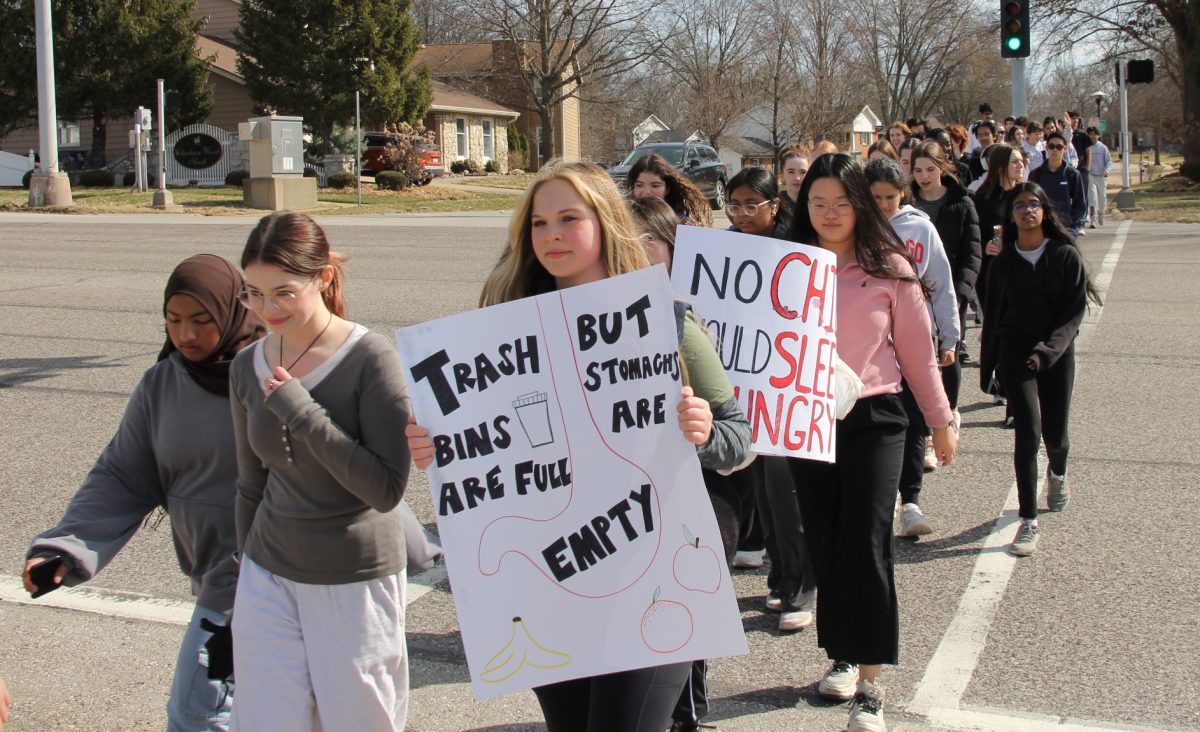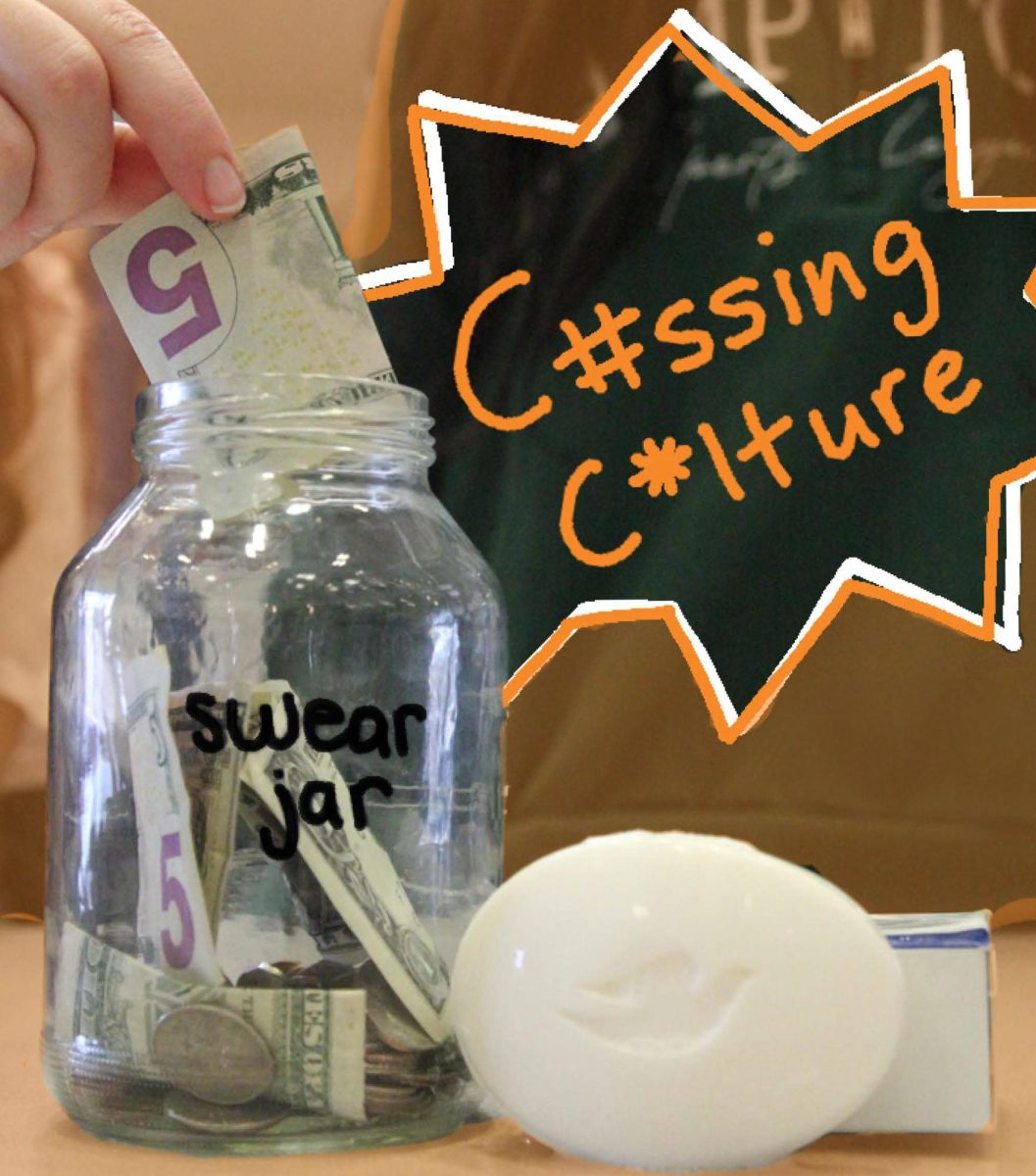Review: Lana Del Rey “Honeymoon”

September 22, 2015
How does one describe Lana Del Rey?
Well, for starters, she’s one of the most polarizing figures on the pop music scene today. Cynics label her a spoiled brat who’s trying (and failing) to rock some sort of indie-cred, when, in reality, she got where she is today because of her rich father.
Meanwhile, fans praise her for her vocal ability and moody lyrics, all backed by a distinctly haunting sounds.
Her first two albums, “Born to Die” and “Paradise”, especially embodied these traits, sounding largely baroque-pop, with some hip-hop influence present as well. These albums were released to mixed critical reception.
For a while after the release of these two albums, Lana Del Rey was regarded by critics as dull, mediocre, and largely bland, give or take a few good cuts.
Until last summer, when her third album, “Ultraviolence”, was released.
The album, a collection of East-Coast inspired psychedelic rock, was met with overwhelming critical acclaim, and is commonly considered one of the best albums of 2014.
My status as an LDR fan was instantly cemented the moment I heard the opening track to that album, entitled “Cruel World.”
And now, only a little over a year later, her fourth album, “Honeymoon,” has been released. So does it hold up? Was she able to top Ultraviolence?
Eh. Not really. In fact, it’s more of a regression.
By no means is this a bad album. Lana’s talent is very evident in every song on here, especially her rich singing ability. But it lacks the strength that was found in “Ultraviolence,” and reverts back to the mediocrity of her first two albums.
The Lyrics
I’ve always had horribly mixed feelings towards Lana’s lyrics, and this album is no exception.
There’s clearly a lot of effort put into the lyrics, as she seems to be aiming for a sort of Jim Morrison-esque lyrical ability (even incorporating some spoken word poetry at some points of the album.)
The problem with this is that it’s incredibly pretentious, and a lot of the subject matter is repeated throughout.
She always seems to be romanticizing about her abusive relationships with coke-snorting bad boys who exclusively drink Pabst Blue Ribbon, which is a lot cooler than every other beer for some reason.
The worst part of the lyrics, however, is by far the anti-feminist sentiments that are found throughout.
Do female pop stars have to incorporate feminist themes in their music? No, not at all. But the lyrics found in this record make Edith Bunker look like Susan B. Anthony, and living in 2015, I consider this a problem.
Lana is incredibly submissive and dependent on every male character found on this release, going far as to croon, in “Music to Watch Boys to,” “I like you a lot, so I do what you want.”
It’s this sort of lyricism that rubs me the wrong way about Lana Del Rey. Supposedly she’s playing a character on her albums, but if this is the case, the line between character and reality is incredibly blurred.
Is she actually romanticizing abusive relationships, or is it not to be taken seriously? Thinking about this question is confusing, and leaves me with a bad taste in my mouth.
If she really is playing a character, this device may provide some decent characterization and shock value on the first couple tracks, but it wears thin quickly either way.
The Performance
This is where the quality of the album really shines.
Even the worst songs on this album are saved thanks to the strength of Lana’s vocal ability and performance.
Lana’s voice has been described as “husky” and “gravely.” It sounds like if Lolita was a drunk, stoned, pill-popping lounge-singer, and I mean that in the most affectionate way.
Her knack for vocal performance is especially evident in songs such as “God Knows I’ve Tried,” and the aforementioned “Music to Watch Boys To.”
The performances on these tracks feel very intimate, to the point where it’s almost uncomfortable (in a good way, of course.) At times it even sounds like she’s whispering right into the listener’s ear.
This creates a great effect that really lets the listener get a full scope of her magnificent singing voice.
The Composition
The music on this album is what I’m primarily referring to when I call it a regression.
Lana’s first two albums boasted cinematic, noir-ish strings, with a tinge of hip-hop, while her third album was filled with dreamy neo-psychedelia that sounded like an acid trip by Lou Reed.
In “Honeymoon,” she reverts back to the first two albums’ string/hip-hop sound.
Don’t get me wrong, the sound is as strong and as beautiful as it was on her first two releases. But I stand by the belief that artists should be constantly evolving and moving forward with new ideas, instead of reverting back to concepts they’ve already used in the past.
This sound doesn’t feel new and refreshing anymore. Now it’s tired, and makes the album very boring to listen to.
A lot of the melodies sound very similar as well. About halfway through you feel as if Lana’s run out of ideas.
It isn’t all bad, however.
“High By the Beach,” which is by far the best song on the album, showcases ghostly organs, as well as a trap beat, like a rap concert at a haunted house.
“Don’t Let Me Be Misunderstood,” a cover of the Billie Holiday tune made famous by The Animals, also incorporates a creepy organ riff, that sounds almost like a dusty old music box.
Aside from those two songs, as well as a few others, the music here feels way too similar to her first two albums, to the point where it’s very distracting.
The Verdict
All in all, the album isn’t really that great.
It treads a lot of the same ground that was touched upon in “Born to Die” and “Paradise.”
Her lyrics haven’t really improved, and she returns to a sound that has now become familiar and commonplace for her
The problem isn’t that it’s a bad album. In fact, it’s a very good one, with a lot of talent on display.
But the reason I speak unfavorably of it is because with “Ultraviolence,” she appeared to set the stage for equally great future projects, but instead seems to have gone back to her roots, which is a pretty dull move in my opinion, especially for somebody who is still relatively early in her career.
Despite all this, I expect her to recover in the future.
The only people I’d recommend this album to are pretentious Tumblr users who run a “soft-grunge” blog and work at Urban Outfitters with a strong sense of self-entitlement because they know who Tame Impala is.
Rating: C



















